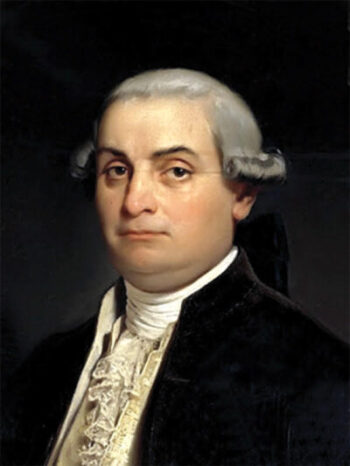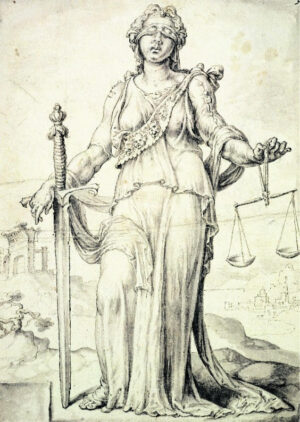 Cranston at the 68th Berlin International Film Festival in 2018
Cranston at the 68th Berlin International Film Festival in 2018
Your Honor is an American mini-series starring Bryan Cranston
*This article contains spoilers*
A well-meaning New Orleans judge, Michael Desiato, finds himself in a frightening situation when he discovers that his son, Adam, was in a hit and run accident with a son of the local mafia boss, Jimmy Baxter. Adam had been visiting the site of his mother’s death when approached by local guys. He drives off at speed only to drop his inhaler on the car floor during an asthma attack. As he struggles to drive the car and pick up the inhaler at the same time his car is in a collision with Jimmy Baxter’s son’s first spin on his motorbike. Rocco Baxter, the son, chokes to death on his own blood at the side of the road as Adam panics and drives off. When Michael realises who the dead boy was he tries to protect his son by arranging with Adam to cover up what happened.
He asks a friend to organise the destruction of Adam’s car but it ends up in the hands of a teen, Kofi Jones, who is caught with the car after running a red light. The police discover that this was the car involved in the hit and run when a piece of the motorbike is dislodged from underneath the car. Jimmy Baxter now believes it was Kofi who killed his son in a crime gang hit. Kofi is sentenced without parole for the hit and run. Things escalate when Jimmy’s other son kills Kofi in prison and Jimmy has Kofi’s family house blown up, basically getting his retaliation in first. For Judge Michael Desiato, things go from bad to worse as the more he uses his middle-class power and influence to protect his son, the greater the negative effect this has on the working-class family and friends of Kofi, extending out like ripples in a pond. Or worse still, more like the Butterfly Effect, as the initial freak accident sparks off intergang rivalry and then further knock-on wider repercussions on a political level.
Your Honor, starring Bryan Cranston, combines elements from Breaking Bad (well-meaning professional gone bad) and The Sopranos (ruthless mafia boss) in a show which goes beyond middle-class fascination with organised crime and its ill-gotten wealth and demonstrates the disastrous effects that chess-like power-plays have on the ordinary people caught up in the resulting tsunami of deadly consequences. While the powerfully corrupt seek revenge outside the system, and powerful professionals try to avoid justice within the system, the working class can only hope for ‘saviours’ (e.g. empathetic lawyers) or fair-minded judges conscious of the social context of much crime (like Judge Michael Desiato). Like a Greek tragedy, the more Judge Michael Desiato tries to avoid Fate, the more he brings about the show’s ironic deadly ending. Had he just trusted the institutional justice system in the first place, the final outcome would most likely not have been so tragic.
The fact is that the struggle against the ideology of revenge (i.e. ‘an eye for an eye’) is one that has been going on since the Enlightenment, the intellectual and philosophical movement of the 17th and 18th centuries. The insidious effect of revenge on the judicial system, unpredictable and outside of the law, was a motivating force for philosophers like Cesare Beccaria (1738–1794) to try and establish a fairer system not based on fear or favour. Thus:
Enlightened reformers moved away from corporal punishment, seeking to design a penal system that would make punishment more useful, edifying the prisoner while simultaneously repairing the damage the prisoner had inflicted upon society. Central to these plans were work and imprisonment. Work was a common corrective technique, and many reformers believed the regularity and discipline of labor would lead to the moral rejuvenation of the wrongdoer while serving social needs at the same time.
 Cesare Beccaria (1738-1794), father of classical criminal theory
Cesare Beccaria (1738-1794), father of classical criminal theory
Thus, the two main modern theories of retributive justice (or punishment for wrongdoing) are utilitarian theories that “look forward to the future consequences of punishment, while retributive theories look back to particular acts of wrongdoing, and attempt to balance them with deserved punishment.”
At the very least Enlightened views on justice try to reform the criminal, stop him from repeating the crime, while at the same time, deterring others. The main purpose of punishment, then, is to create a better society and avoid revenge.
Leon F Seltzer summarises the important differences between justice and revenge:
1. Revenge is predominantly emotional; justice primarily rational.
2. Revenge is, by nature, personal; justice is impersonal, impartial, and both a social and legal phenomenon.
3. Revenge is an act of vindictiveness; justice, of vindication.
4. Revenge is about cycles; justice is about closure.
5. Revenge is about retaliation; justice is about restoring balance.
The cycles that Seltzer discusses can be seen, for example, in the Gjakmarrja (English: “blood-taking”; i.e., “blood feud”) or hakmarrja (“revenge”) of Albanian culture referring to the social obligation to commit murder in order to salvage honour. Gjakmarrja can be initiated when a guest is killed, failure to pay a debt, or rape. The profound consequences of the gjakmarrja on society is shown when the feud extends over many generations or leads to family members living in shame and seclusion for the rest of their lives, imprisoned in their own homes because they refuse to pay with the lives of their family members.
The overwhelming psychological power of revenge in Your Honor is demonstrated by the fact that the narrative centres around a judge, an important representative of the modern justice system. It shows why it is so important to gain general acceptance of a system of punishment that deters others from committing crimes while at the same time preventing criminals from repeating their crimes. In this way justice acts like a controlling carbon rod in the potential fission of escalating cycles of revenge.
 Justitia by Maarten van Heemskerk, 1556. Justitia carries symbolic items such as: a sword, scales and a blindfold
Justitia by Maarten van Heemskerk, 1556. Justitia carries symbolic items such as: a sword, scales and a blindfold
We live in a time when disillusionment with the justice system (short sentences, crimes committed on bail, clever lawyers getting offenders off, etc.) is amplified in the popular press, making the justice system appear to be a lot less ineffectual than it actually is. However, Your Honor, with its relentlessly depressing atmosphere and its narrative of desperate actions and reactions gives us some inkling of what societies would be like if that was the norm rather than the exception, and when your honor is more important and sacred than life itself.
The post Your Honor: Justice in a time of collapse first appeared on Dissident Voice.